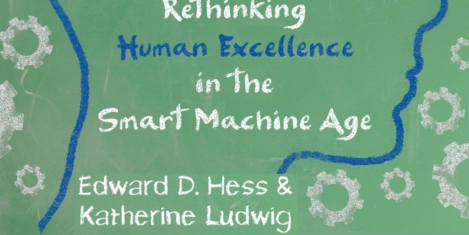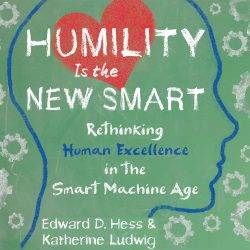March 21, 2017
Only half of people say they are productive at work 0
 Junior members of the workforce are most likely to be disengaged, demotivated and lacklustre about work according to a survey on happiness in the UK workplace from HR consultancy Personal Group. Based on a survey of 800 people benchmarked against a larger database of 41,000 from the University of Warwick, the survey claims that 48 percent of employees are not often happy at work and that almost one in five are rarely or never happy at work. The report suggests that it is more junior employees who are not only less keen to get to work in the morning but are also unhappier at work when compared to senior managers, directors and those who are self-employed. Similarly, when asked whether they feel enthusiastic about their job, directors and self-employed are the most passionate, reporting 70 percent and 76 percent respectively. Team leaders and frontline employees are significantly less enthusiastic, with 30 percent of the latter saying that they never feel enthusiastic at work.
Junior members of the workforce are most likely to be disengaged, demotivated and lacklustre about work according to a survey on happiness in the UK workplace from HR consultancy Personal Group. Based on a survey of 800 people benchmarked against a larger database of 41,000 from the University of Warwick, the survey claims that 48 percent of employees are not often happy at work and that almost one in five are rarely or never happy at work. The report suggests that it is more junior employees who are not only less keen to get to work in the morning but are also unhappier at work when compared to senior managers, directors and those who are self-employed. Similarly, when asked whether they feel enthusiastic about their job, directors and self-employed are the most passionate, reporting 70 percent and 76 percent respectively. Team leaders and frontline employees are significantly less enthusiastic, with 30 percent of the latter saying that they never feel enthusiastic at work.











 Very few organisations are ready to manage a workforce where the latest technologies and people work side by side. Just 13 percent of UK companies are ready to respond to digital disruption and create “the organisation of the future”; despite 88 per cent believing this has become a priority. This is according to the 2017 Deloitte Global Human Capital Trends survey, which tracks the top trends shaping the agenda for HR and business leaders. However, while UK companies believe they are ill-prepared for the change brought by digital disruption, this has not stopped many of them from embracing disruptive technologies. 42 per cent report that they have adopted robotics, cognitive and artificial intelligence (AI) technologies within all or parts of their workforce. Another 42 per cent are running pilots in certain areas of their organisation. But only 16 per cent say they are ready to manage a workforce with people, robots and AI working side by side.
Very few organisations are ready to manage a workforce where the latest technologies and people work side by side. Just 13 percent of UK companies are ready to respond to digital disruption and create “the organisation of the future”; despite 88 per cent believing this has become a priority. This is according to the 2017 Deloitte Global Human Capital Trends survey, which tracks the top trends shaping the agenda for HR and business leaders. However, while UK companies believe they are ill-prepared for the change brought by digital disruption, this has not stopped many of them from embracing disruptive technologies. 42 per cent report that they have adopted robotics, cognitive and artificial intelligence (AI) technologies within all or parts of their workforce. Another 42 per cent are running pilots in certain areas of their organisation. But only 16 per cent say they are ready to manage a workforce with people, robots and AI working side by side.




 Nearly three quarters of European employees would consider career opportunities abroad, with Germany voted the most desirable place to work claims a new study of nearly 10,000 working adults across Europe. According to research by ADP which looked at how employees feel about the future of work, international competitiveness and talent management, European employees have a strong appetite for international work, as almost three quarters (74 percent) would consider other countries for career opportunities. At 21 percent, Germany tops the list of most popular places to relocate, with the United Kingdom (15 percent) and France (12 percent) in second and third place; with North America surprisingly coming in much further down the list in 12th place. Despite their popularity, Germany, the UK and France aren’t particularly strong in any of the areas measured in the survey, such as skills and development, flexible working options and stress in the workplace.
Nearly three quarters of European employees would consider career opportunities abroad, with Germany voted the most desirable place to work claims a new study of nearly 10,000 working adults across Europe. According to research by ADP which looked at how employees feel about the future of work, international competitiveness and talent management, European employees have a strong appetite for international work, as almost three quarters (74 percent) would consider other countries for career opportunities. At 21 percent, Germany tops the list of most popular places to relocate, with the United Kingdom (15 percent) and France (12 percent) in second and third place; with North America surprisingly coming in much further down the list in 12th place. Despite their popularity, Germany, the UK and France aren’t particularly strong in any of the areas measured in the survey, such as skills and development, flexible working options and stress in the workplace.















February 13, 2017
Neuroscience can function as a management tool for personal development 0
by Mike James • Comment, Workplace
More →